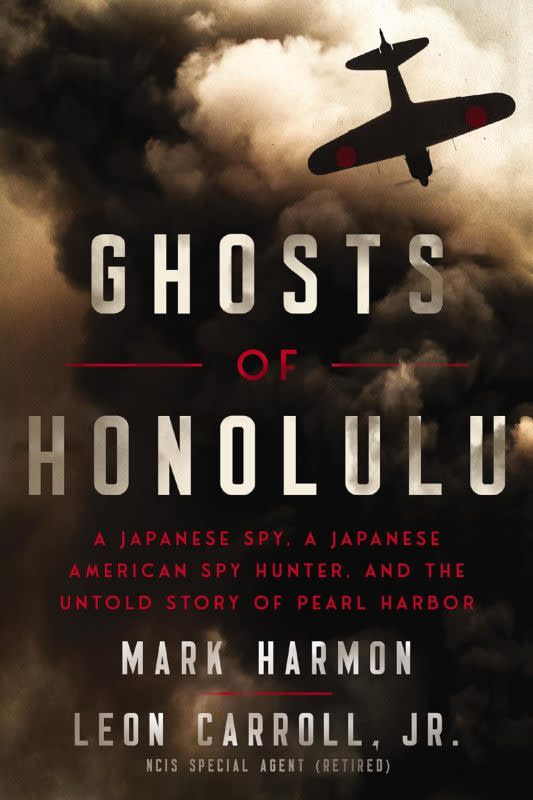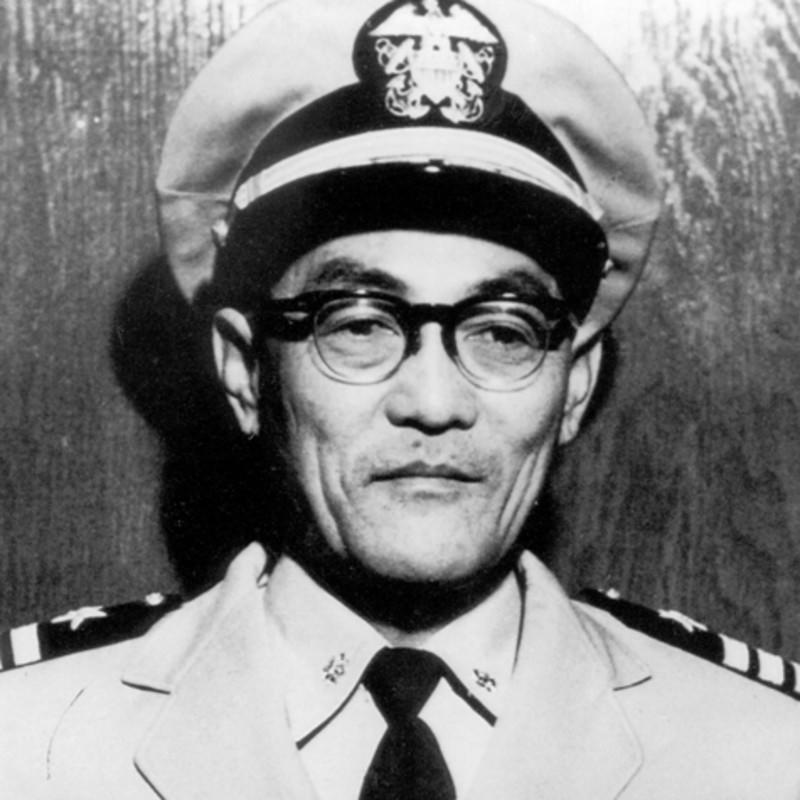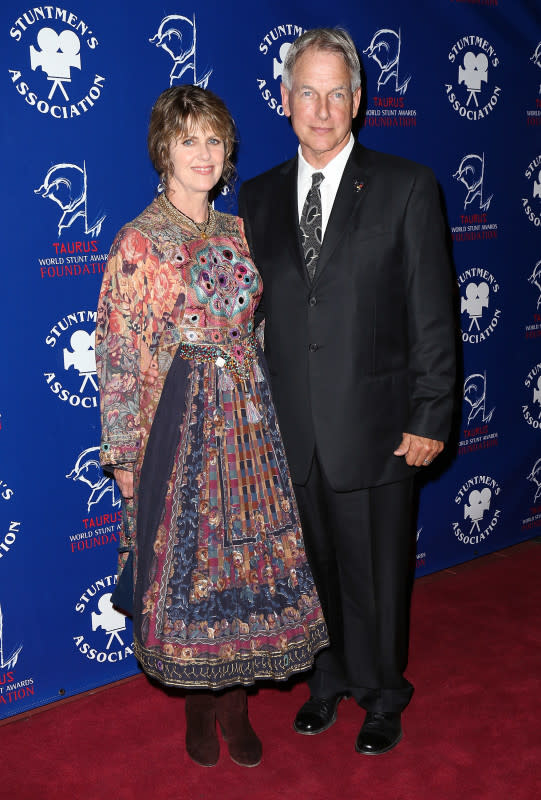Mark Harmon Weighs in on Whether He's Retired From Acting

Mark Harmon
In his latest adventure, the NCIS star Mark Harmon, 72, teams up with former real-life NCIS Special Agent and technical advisor to the TV series, Leon Carroll, Jr. They’ve cowritten Ghosts of Honolulu: A Japanese Spy, A Japanese American Spy Hunter, and the Untold Story of Pearl Harbor (on sale Nov. 14). The true-life, spy-versus-spy story follows Douglas Wada, the only Japanese-American agent in naval intelligence, and Takeo Yoshikawa, a Japanese spy sent to Honolulu to gather information on the U.S. fleet in the events leading up to and following the attack on Pearl Harbor. As a reminder, NCIS = Naval Criminal Investigative Service; in the early days it was called the Office of Naval Intelligence (ONI).
Related: The 'NCIS' Cast: Where Are they Now?
Parade sat down with Harmon to discuss his latest venture.

Harper Select
Walter Scott: Let’s talk about your journey from actor to author. What inspired you to coauthor this with Leon?
Mark Harmon: Before the show, I didn’t know anything about NCIS; there wasn’t information anywhere on it at the time that we did the pilot. What I know, I learned over the course of 19 years and working alongside Leon Carroll. If there’s any reason to do the book, it’s about giving back to a guy like Leon, and also the agency.
And the story and the history are interesting. It’s different from the TV show. Obviously, the stakes were remarkably higher [during the time we wrote about] in all cases and in all directions, and nobody knew about it. Then these agents never talked about it. They were never asked about it. It was just a job they did quietly, and no one knew. Now part of that history is potentially able to come out.
With the hundreds of possible NCIS stories to tell, why did you pick Pearl Harbor? Was it because of the magnitude of it and then the ability to make it feel personal because you could include the real-life story of Douglas Wada?
I didn’t think in terms of Pearl Harbor being the event historically that it was. What was interesting was Douglas literally being the first…the history of how this opportunity [to be a spy] found him and how he was the right guy at the right time for the right job. The job that he was tagged to do, not only as an interpreter but in some ways interrogating the first prisoner of war of that time from Pearl Harbor, he just was the first. On top of that, he was a Japanese-American individual who basically came up through the Navy.
It was interesting to me, too, that in the process of this work all of a sudden somebody had a picture of the first ONI office, and it made me smile. Because it’s like something you do on a baseball team, you take a team picture, right? These guys are all special secret agents. Right? But they take a team picture.
And in the middle of that team picture, Douglas Wada jumps out at you. Of all the people in this picture, there’s rows and rows and rows, and Douglas Wada is diminutive, but you can pick him out of a crowd of a hundred. And yet this is the job he did, and no one knew he did it. They never talked about it. To be able to open up that story for people who enjoy the history of where it came from, that feels great to open that door and to be part of that.
I worked with Leon for 20 years, and before Leon, I worked with another agent, and I grew respect over all these years of the real people and what they do, both male and female. It’s a really hard job, not for money. It’s very costly on your relationships. It’s just a story worth telling.
Reading it reminded me of the idea that if you don’t learn history, you’re doomed to repeat it because of how the agencies were not sharing information. Do you think there are lessons from Pearl Harbor that are still to be learned?
History sometimes repeats itself. You find that as part of life. I think at different times, we all think, What have we learned? What have we gained? Pearl Harbor as an event, in retrospect, there were all kinds of opportunities to have looked at certain things and said, “Oh, we’ve got a problem here; let’s put some focus on this.”
But the story is not about, “Hey, we should have paid more attention when in Pearl Harbor at that time.” It’s about talking about this agency that did a very quiet job for so many years until a TV show was made about it. That TV show is a very successful show but that’s not the story. Giving the real people an opportunity to tell that story matters. That’s all. I like history, I like to read, and I like to learn, and I like to try to play characters honestly. To do all that, I like to do my homework. So, in that process I gained more respect for some of these things.

NCIS
With your TV and film background, would you like to see this turned into a limited series?
I don’t know. I still don’t think like that. I just try to do the work at hand well, that’s it. Are there more stories to tell? Absolutely. Would we do that if the opportunity came forward? Quite possibly. This is just one of many. This is the first one because it really is what birthed the agency, or what the agency is known as now. At that time, it wasn’t known or even bearing the same title.
How did you and Leon divide up the work on the book?
We were all pitching in. We’ve got a great researcher and Leon’s very knowledgeable and has great access to the history of the agency. At the same time, talking to people who know not only declassified stuff, but offer the basic access of information that you can’t get from jumping on a computer. And then there’s a much greater volume of information in general on the agency because of the TV show. Of course, the show’s the show; you need to have a dead body every week, otherwise certain actors don’t work. That’s fine and that’s great for the TV show, but that’s not the real story. That’s what drew me, the fact that there’s a story to tell.
To honor the strike, we can’t talk about NCIS from an acting point of view, but you’re still a producer on this show. Are you actively involved in stories now that the WGA strike has been settled?
I’m there. I have an executive producing credit that stays. When I was on the show, this is past, and thank you for respecting the strike and all, I saw my job as reading ahead and getting ahead and noting and doing all that. Whether people listen to that, that’s a whole other thing. Not being there every day, things change. Runners change, writers change, shows change, casts change, all that. Whether they pay attention or don’t pay attention, I don’t know. I’m not as tuned in as I was when I was there, so I don’t know how to answer that. They’ve got plenty of work to do just to keep the balance of the show going, and they seem to be doing that well.
Related: Go Behind-the-Scenes of Mark Harmon’s Teary Exit That Rocked the ‘NCIS’ Cast and Crew
Are you retired from acting now or might there be projects?
No, I never retired. As far as I know, if you’re talking about Gibbs, he’s living in Alaska. If you’re talking about Mark, he’s home doing what he always did, which is read things.
Have you grown out your hair from the Leroy Jethro Gibbs haircut?
My hair is still pretty short. Not like the high and tight, but still pretty short. I always thought that haircut helped me know who the character was. I was meeting the real people and just remembering certain things that I saw that I wanted to build on. That’s what actors do; they steal things from the real.
If there was a special project that came along, would we see you in front of the camera again?
I always saw this business as if you’re fortunate enough to get work and do work, that it’s about having choices. It’s about having an opportunity sometimes even to say no. There was a time where I could never say no. And most actors can’t. I’m appreciative of having that choice. I don’t see myself as retired. If the right thing comes along, I’ll probably go to work, and if it doesn’t, I have plenty of other things to do.

Getty
How do you fill your days? Does your wife, Pam Dawber, try to shoo you out of the house?
Whether she’s trying to get me out of the house or not, I don’t know. But I always have things to do. I have lots of physical things to do every day and I’m as busy as I want to be. And the whole COVID time has been interesting, not only to have worked in front of the camera but also to have not. In a way that’s affected all kinds of things. I’ve got a long list of things that keep me busy during the day and I don’t lack for projects. That’s never been an issue, ever.
Next, The Secret to NCIS Star Mark Harmon and Wife Pam Dawber's Happy Marriage
